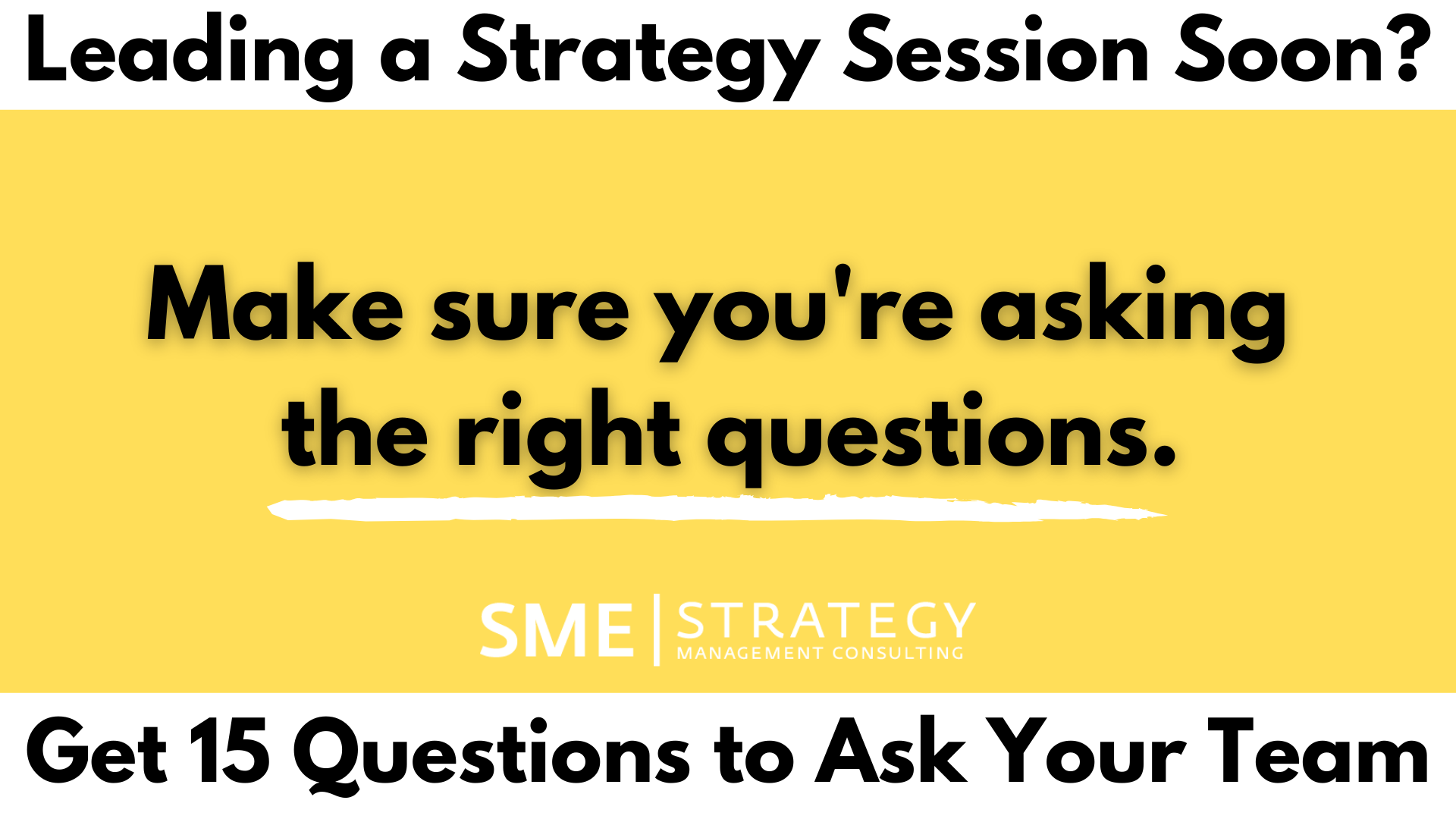
SME Strategy is a strategy consulting company that specializes in aligning teams around their vision, mission, values, goals and action plans. Learn more about how we can help you and your team create a strategic plan with our strategic planning and implementation services.
To effectively implement a strategic plan or carry out a complex project, a culture of accountability needs to be developed throughout the organization. To achieve success, everyone needs to understand the organization's strategy, their individual roles within the company, and the specific tasks or projects that they are responsible for. Accountability is not limited to staff - Managers and leaders must also follow through on their promises and remain committed to their performance and organizational goals.
When accountability is absent, the effects can cascade through an entire organization, especially with larger teams who have multiple people working in different roles on a project. Not only will projects be delayed (or sometimes even derailed), but attitudes like apathy, low performance, passive aggressiveness, and a lack of trust might develop. In short, when team members don’t trust each other to follow through, both performance and culture can suffer immensely.
If you want to lead a high-performance and committed team who take ownership for their projects and tasks, these tips will help you get started:
- Foster an environment of openness and trust
When mistakes or delays are strongly discouraged, or if tough conversations are avoided, staff may feel overwhelmed and either avoid their task or rush to complete it.
When a member of your team is behind schedule or has made a mistake, it’s important that they feel safe and comfortable to approach a team member or a leader for advice or assistance, with enough time to rectify the issue. Though asking for help can be tough, it can also help to build autonomy, trust and understanding, which can help develop strong teams with high productivity.
- Understand your employees and what motivates them
While we don’t all have the same motivations and drives, there are certain culture traits that lead to higher workplace satisfaction. When people are given opportunities to learn and grow, develop in their roles, and to feel like their contribution matters.
To help sustain a culture that supports these values in combination with accountability and performance, leaders can:
- Be open to communicate, but avoid micromanagement
- Encourage collaboration while supporting autonomy
- Support employee growth and education
- Continue their own education through workshops and conferences
Check out our podcast with Jeremy Bailey, the Creative Director of FreshBooks for some great insights on how to motivate your people to do their best. (Also, Daniel Pink wrote a great book about this topic!)
Need help with your strategic planning process? A facilitator can help:
- Set clear and actionable goals with metrics for success
Whether you’ve just had your strategic planning session, or are planning a new project, it’s crucial that your team leaves the meeting or conversation with a clear understanding of what their specific responsibilities are.
By clearly defining tasks and timelines (together with the team who will be implementing the steps), staff can leave the meeting with a strong understanding of which next steps to take, how long they should spend on them, and what the end product should be.
- Track and review your progress on an ongoing basis and celebrate both failure and success
For employees to know when a project or task is complete and to the level of quality expected of them, there needs to be a tracking method in place, with clearly defined definitions of success.
Make sure to monitor your progress on a regular basis (for example, weekly or monthly) to determine that the project is still attainable, on track, and within scope. During your tracking and monitoring meetings, encourage your team to share their failures and successes. This will help the team understand what works and what doesn’t, allowing them to move forward with their tasks with confidence.
- For leaders to remain accountable to their organization and teams, it is beneficial to work with a facilitator or a strategy partner
Even leaders need help to stay accountable! When leading an organization, leaders may become too focuses on day-to-day tasks that they lose sight of the big picture, or they may keep such a wide scope that they have difficulty understanding the finer intricacies of the organization.
On a short-term basis, these won’t always present a problem, but leaders experiencing either of these extremes on an ongoing basis may not maintain accountability to the organizational strategy, their teams, or their tasks.
Working together with an external facilitator or strategy partner can offer multiple benefits, such as:
- Helping leaders to maintain momentum and an understanding of where the business is going.
- Motivating leadership teams and their employees to remain aligned with the vision and strategy across the organization.
- Empowering leaders to recognize possible roadblocks and risks before they become problems.
- Developing leaders to understand how to manage performance and lead a high-functioning and high-performing team.
- Encouraging leaders to seek support and coaching when they find themselves out of their scope, or needing assistance to stay on track.
When leaders are committed to their accountability, they can make a positive impact on their organization’s culture, leading to alignment and success across the entire organization.



